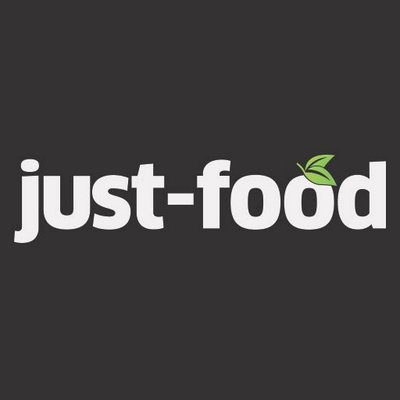
Honor Thy Label sheds Light on the Truly Remarkable Company that is Dr. Bronner’s
(Photo credit: Erin Sojourner)
Please be sure to follow us on LinkedIn and Instagram, and you can support our work by forwarding this email to your colleagues and having them subscribe. Thank you!
Becoming one of the industry’s most revered and iconic brands was never the goal for Dr. Bronner’s.
Rather, this family-owned company has been squarely focused on one thing: making decisions that better the world, something that embodies the All-One! philosophy espoused by Emanuel Bronner, who launched the business in 1948.
Dr. Bronner’s gives away at least 1/3rd of its annual profits – approximately $16.3M in 2020 — to hundreds of social and environmental causes, and is heavily involved in every important issue in organic, whether that is taking a lead role in the campaign for GMO-labeling, serving as one of the primary backers of the Regenerative Organic Certified standard or fighting for decades to legalize industrial hemp farming.
Yet, at its core, Dr. Bronner’s is a soap company, and from where it sources its raw ingredients is a story that often gets overlooked because so much of this activity takes place in countries far away.
In his new book, Honor Thy Label: Dr. Bronner’s Unconventional Journey to a Clean, Green, and Ethical Supply Chain, Gero Leson, the company’s Vice President of Special Operations, gives us an inside look at how Dr. Bronner’s grew from its countercultural roots to create a revolutionary fair trade and organic supply chain from the ground up.
Below is an edited version of my conversation with Gero Leson, a long-time employee and the person responsible for building manufacturing capabilities around the globe.
The operating philosophy, financial structure and culture of Dr. Bronner’s is highly unusual. Can you please talk a little bit about this and why it has resulted in such a successful company?
Dr. Bronner’s success in the U.S. market, and increasingly worldwide, comes from a few key sources.
First, as part of the company’s credible vision and purpose, we believe we can help “clean up the world,” through our business. This motivates our teams to give their best, be loyal and look beyond their immediate area of responsibility. But unless the structure exists that turns good intentions into action, a company isn’t credible in the long-term to its employees and its customers.
Second, our ownership structure and how people are paid are both unique. Officers’ salaries are capped at 5x the lowest-paid fully-vested position, and no personal dividends are paid to the family-member shareholders. This allows us to afford meaningful and beyond-competitive compensation packages for employees, in addition to bonuses, profit sharing and a no-deductible health insurance plan.
And, since we’re consistently profitable, the structure also allows for significant contributions to be made to support activism and philanthropy.
With the company sourcing ingredients from all over the world, why did Dr. Bronner’s decide to set up individual operations in many of these countries, such as India, Ghana and Sri Lanka?
In 2005, Dr. Bronner’s decided it needed to ensure that the farming and processing of its main raw materials — coconut, palm, olive and mint oils — benefited farmers, workers and their communities. But it turned out that no fair trade standards existed for our ingredients at the time under the Fair Trade International (FLO) program. That’s why we decided to do it ourselves.
We built our own facilities in some countries with local partners and selected a fair trade certification program, called Fair for Life, that was meaningful, comprehensive and strictly enforced. It applied not only to farmers but also to production workers and their communities and to the ultimate brand, Dr. Bronner’s.
What did you learn in the process of doing this?
That organic agriculture is much more than just “not spraying” and fair trade is much more than just “paying a somewhat higher price” to farmers. It’s about actively supporting farmers in improving the fertility of their land and the diversity of their production, and helping to strengthen local communities where you’re close enough to have an impact.
For other companies that do not have a Special Ops team or dedicated operations in local countries, what are some practical steps that they can start taking to make their supply chains more sustainable and ethical?
Examine closely your raw material supplies, identify those that may be ecologically or socially problematic, and look for existing fair trade of Fair for Life grower groups.
Also, check with other companies that have gone through this process. For example, Dr. Bronner’s has started, with friends, a “regenerative sourcing working group” that discusses issues of responsible sourcing and is building a database of good suppliers.
There is no silver bullet, but it should be driven by the desire not to just add another label to the product but to effect change on the ground while developing closer relationships with the origins of your products.
You were born in Germany, moved to California to get your PhD in environmental science and engineering at UCLA, and eventually found yourself at Dr. Bronner’s. Interestingly, you helped the family rediscover its roots in Germany, where Emanuel Heilbronner Sr. started producing soap and candles in 1858. Did you ever imagine that your own journey would be like this and that it would essentially come full circle?
I had no idea, and I don’t think you can plan a life like this. My meandering career has taught me to use my talents wherever useful, never lose sight of my crazy dreams of a better planet and be open to opportunities that fit.
Meeting David Bronner (the company’s Cosmic Engagement Officer — CEO) through a collaboration on industrial hemp was one such encounter. That it took me back to my German origins and the ideas I cherished when I was in my teens was serious icing on the cake.
—
For those of us in the organic industry, we all have the goal of doing well while doing good, and Honor Thy Label gives us an inside look at how this can be accomplished at the highest level. This book is an inspirational and fascinating read, and it will detail to the world exactly why Dr. Bronner’s is such a special company. All-One!
Honor Thy Label goes on sale March 9th and is available for pre-order now.
Also, next Tuesday night at 8pm EST on Clubhouse (@organicinsider), Gero Leson will be talking about the book and taking your questions. Please join us.
 Gero Leson
Gero Leson
 The Bronner Family — from l. to r., Michael Milam, Chief Operating Officer; Trudy Bronner, Chief Financial Officer; Michael Bronner, President; David Bronner, Cosmic Engagement Officer (CEO)
The Bronner Family — from l. to r., Michael Milam, Chief Operating Officer; Trudy Bronner, Chief Financial Officer; Michael Bronner, President; David Bronner, Cosmic Engagement Officer (CEO)
 Emanuel Bronner
Emanuel Bronner
 |
With gratitude, 
Max Goldberg, Founder |
Quick Hits
* Congrats to my friends at REBBL who are celebrating their 10th anniversary and for their dedication in fighting against human slavery and exploitation around the world.
* This week, during the National Organic Coalition virtual fly-in, forty organic advocates from across the nation will meet with dozens of Congressional offices to urge action on climate change, unfinished organic regulations and advancing racial equity in organic agriculture.
* How Jennifer Garner and Once Upon a Farm are on a mission to feed kids and elevate nutrition.
* Rodale Institute, in partnership with Organic Farmers Association, is offering a micro-grant program specifically targeted to support small-scale BIPOC farmers — whether they are organic, transitioning to organic or an aspiring organic farmer.
* The spring meeting for the National Organic Standards Board will be held virtually from April 20-30.
* The trailer for Seeding Change — a film that speaks to the importance of sustainable businesses and how conscious consumers can save the planet by voting with their dollars — can be viewed here.
* Daily Harvest has hired a Chief Data Officer to help create tailor-made meals for its customers.
* Naturally San Diego will be holding its 1st Annual Pitch Slam on April 8th, with an application deadline of March 7th.
* Alexandre Family Farm, the nation’s first regenerative organic dairy, drew inspiration from its Wisconsin mentors.
* Phenomenal investigative reporter Carey Gillam has released her latest book, The Monsanto Papers: Deadly Secrets, Corporate Corruption, and One Man’s Search for Justice, which tells the story of Lee Johnson’s landmark lawsuit against the company.
* Freshwater fish are in “catastrophic” decline, with 1/3rd facing extinction.
* In 2020, the number of GOTS-certified facilities grew by 34% globally, to a new high of 10,388, and more than 3 million people in over 72 countries were working in GOTS-certified facilities.
* Kudos to organic, plant-based brand ALOHA for becoming a Certified B Corporation.
* TikTok can single-handedly change the demand for a food ingredient.
New Organic Products
Organic Omega-3 DHA for Kids from Eversea
In what is the absolute first of its kind, Eversea has introduced an Organic Omega-3 DHA for Kids. Containing 60mg of DHA per serving and derived from algae, it is 100% fish-free and vegan. The product has received organic certification in both the U.S. and the EU, and is available in a chewable and tasty fruit drop format.Plant-Based Cheese from Forager Project
Continuing its innovation in the plant-based category, Forager Project announced yesterday that it will be introducing a line of organic, plant-based cheese this spring called CHEESEWORKS. What makes it unique is that it melts and stretches like dairy cheese. Available in four varieties --- queso fresco, parmesan, mozzarella and jack.Grain-Free Pizza Bites from Snow Days
Fresh off his very successful exit from Hu Chocolate, HumanCo's Jason Karp is reimagining a classic childhood favorite with Snow Days. These organic, grain-free pizza bites are made with cassava, grass-fed mozzarella, grass-fed butter, free-range eggs and vegetables. Gluten-free, no seed oils.Gluten-Free Breads from Little Northern Bakehouse
Canada's Little Northern Bakehouse has just announced the addition of three new organic gluten-free breads, which come in three varieties -- ancient grain, oatmeal and original. Non-GMO, plant-based, peanut and nut-free, and third-party verified glyphosate-free, the breads will be available in the freezer aisle at Sprouts and other natural food grocers in the U.S. in the coming months.
Weekly News Summaries

A $42M Bet on Mini-Marts
By Kate Krader
Foxtrot announces Series B funding to expand its chain of upscale convenience stores.

Tom Vilsack is Confirmed by the Senate to Lead the USDA Again
By Jessica Corbett
Sen. Bernie Sanders was the lone progressive to vote against Vilsack, citing concerns about the corporate consolidation of agriculture and the welfare of family farms.
51 Months in Jail, $15M Restitution Ordered in Organic Seed Fraud Case
A South Dakota man bought about $46 million worth of non-organic seed, sold it as organic for about $71 million and used the profits to buy a yacht, Florida home, jewelry, expensive vehicles and land, among other things.


After A Delay, AquaBounty's Genetically-Engineered Salmon Available To U.S. Consumers In April
By Samantha Horton
Fortunately, there has been fierce pushback from retailers in regard to this GE-salmon.

Mexico's Decision to Ban Glyphosate Has Rocked the Agribusiness World
By Timothy A. Wise
In banning glyphosate, Mexico has embraced the precautionary principle and the growing body of scientific research showing the dangers of the chemical.

HowGood raises $6M to Keep Up with Demand for its Sustainability Database
By Rebecca Szkutak
The New York-based startup announced it has raised a new round of funding led by Contour Venture Partners, with participation from FirstMark Capital and Danone Manifesto Ventures.


Crofter's Organic sells Stake to Frontenac
By Simon Harvey
Founded in 1989, the Canadian producer of fruit spreads, jams and preserves has sold a majority stake to the Chicago-based private equity firm.

25% of the Known Bee Species have Disappeared since the 1990s
By Liz Langley
Many of the 20,000 species pollinate 85% of food crops and fruits around the world -- everything from garlic and grapefruits to coffee and kale.

The COVID Gardening Renaissance Depends on Seeds -- if You Can Find Them
By Lisa Held
Demand for seeds is sky high once again, and many say this signals a longer-term shift towards growing food at home.
Want to share this newsletter on social media? You can use this link: Newsletter Link
The material in this newsletter is copyrighted and may be reprinted by permission only. All requests must be in writing. Please use our contact form to request republication rights.
Newsletter Archive
Quick Hits
* Congrats to my friends at REBBL who are celebrating their 10th anniversary and for their dedication in fighting against human slavery and exploitation around the world.
* This week, during the National Organic Coalition virtual fly-in, forty organic advocates from across the nation will meet with dozens of Congressional offices to urge action on climate change, unfinished organic regulations and advancing racial equity in organic agriculture.
* How Jennifer Garner and Once Upon a Farm are on a mission to feed kids and elevate nutrition.
* Rodale Institute, in partnership with Organic Farmers Association, is offering a micro-grant program specifically targeted to support small-scale BIPOC farmers — whether they are organic, transitioning to organic or an aspiring organic farmer.
* The spring meeting for the National Organic Standards Board will be held virtually from April 20-30.
* The trailer for Seeding Change — a film that speaks to the importance of sustainable businesses and how conscious consumers can save the planet by voting with their dollars — can be viewed here.
* Daily Harvest has hired a Chief Data Officer to help create tailor-made meals for its customers.
* Naturally San Diego will be holding its 1st Annual Pitch Slam on April 8th, with an application deadline of March 7th.
* Alexandre Family Farm, the nation’s first regenerative organic dairy, drew inspiration from its Wisconsin mentors.
* Phenomenal investigative reporter Carey Gillam has released her latest book, The Monsanto Papers: Deadly Secrets, Corporate Corruption, and One Man’s Search for Justice, which tells the story of Lee Johnson’s landmark lawsuit against the company.
* Freshwater fish are in “catastrophic” decline, with 1/3rd facing extinction.
* In 2020, the number of GOTS-certified facilities grew by 34% globally, to a new high of 10,388, and more than 3 million people in over 72 countries were working in GOTS-certified facilities.
* Kudos to organic, plant-based brand ALOHA for becoming a Certified B Corporation.
* TikTok can single-handedly change the demand for a food ingredient.




